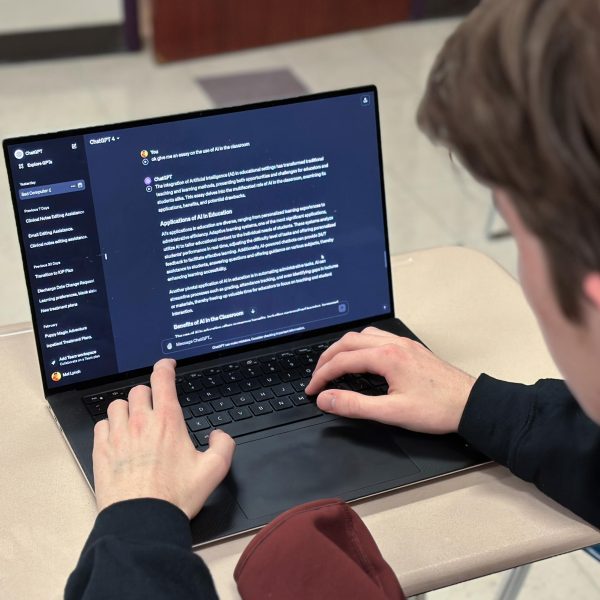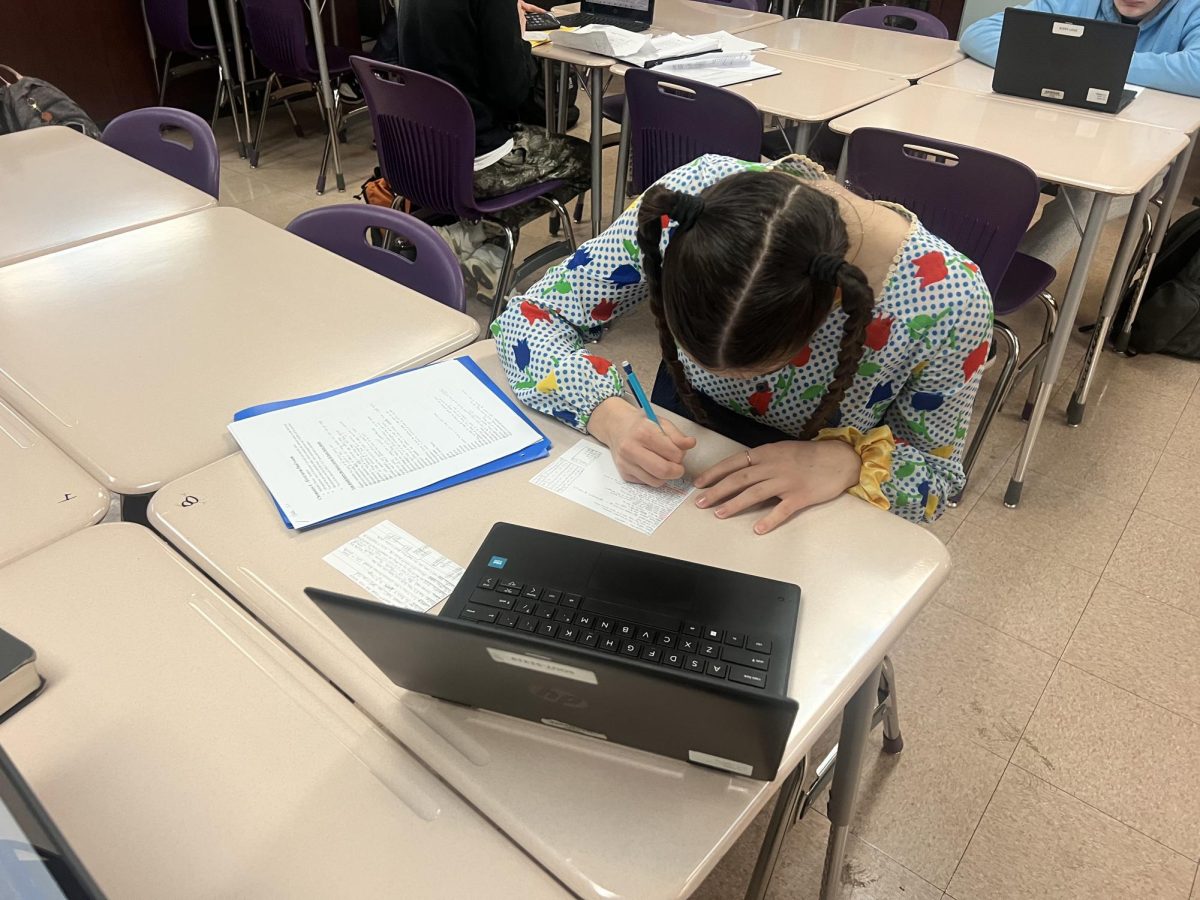Nobody knows what Artificial Intelligence (AI) will become.
Twenty years from now, will we be unemployed, replaced by Chat GPT 10, or will we relax on the beach in an AI utopia? In all likelihood, somewhere in between, but before we get there, let’s look at how it should be used right here, right now, in the halls and classrooms of BHSS.
According to Chat GPT 4, “AI transforms classrooms with personalized learning, preparing students for a digital future.” but is that true? Can we maintain integrity in the classroom while AI grows in power? Should we limit ourselves with an outright ban? Is it possible to prevent students from using AI altogether? Or, should we learn how to educate our students about the power and limitations of everchanging AI so they are empowered by its potential? Right now, we are living in a moment where AI, at least in the sense we view it, is unregulated; there is almost no local, state, or federal regulation dedicated to dealing with its rapid rise in popularity. As such, schools and universities nationwide have been left to fend for themselves with AI regulation and education. Now, just over one year after Chat GPT first exploded in popularity in January 2023, they are starting to make decisions.

One school on the front line of this push is Stanford University, which recently released its “Artificial Intelligence Teaching Guide,” providing guidance for educators on incorporating AI tools into teaching and learning, focusing on designing assignments that leverage AI technologies.
Among their modules dedicated to helping teachers incorporate AI in their classrooms are “Warming up to AI,” “Exploring the pedagogical uses of AI chatbots,” and “Integrating AI into assignments.” Stanford’s actions reflect a broader trend in education, embracing AI to assist learning rather than shying away from it. Thereby paving the way for a future where AI is not a subject of scorn and skepticism but an integral part of the learning experience—preparing students not only to thrive in a future where AI plays a central role but also to navigate the ethical and practical questions that come with it.
South Student Anson Reynolds sees it the same way, stating, “I believe AI creates incredible opportunities for new educational experiences and practices.” Reynolds continued, “Educational leaders like Sal Khan [founder of Khan Academy] are already demonstrating how AI helps teachers create lesson plans and tutors students across the world.”
By following the guidance of Stanford, Khan Academy, and many more leaders in the AI world, teachers and students here at South could get a head start in AI instructions, which may be essential in life after high school, both in college and the workforce. With an AI revolution already occurring, South should strive to bring forward and lead practical and evolving teaching on AI education, one that encourages critical thinking, creativity, and ethical consideration among students, ensuring they are not just consumers of AI but informed participants in its ongoing development and application.


